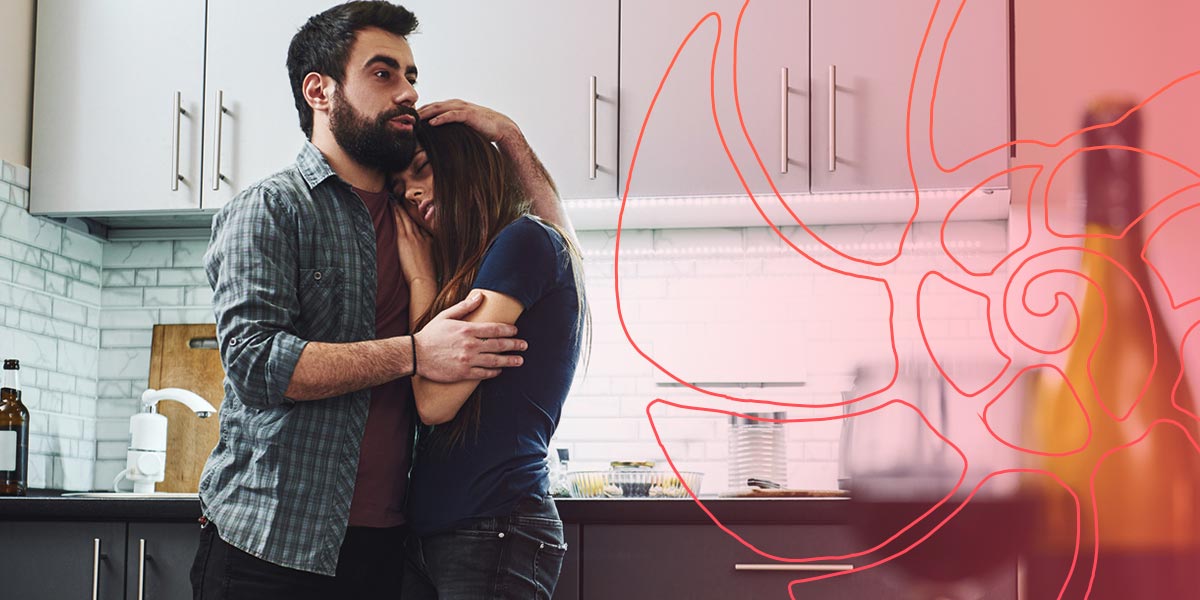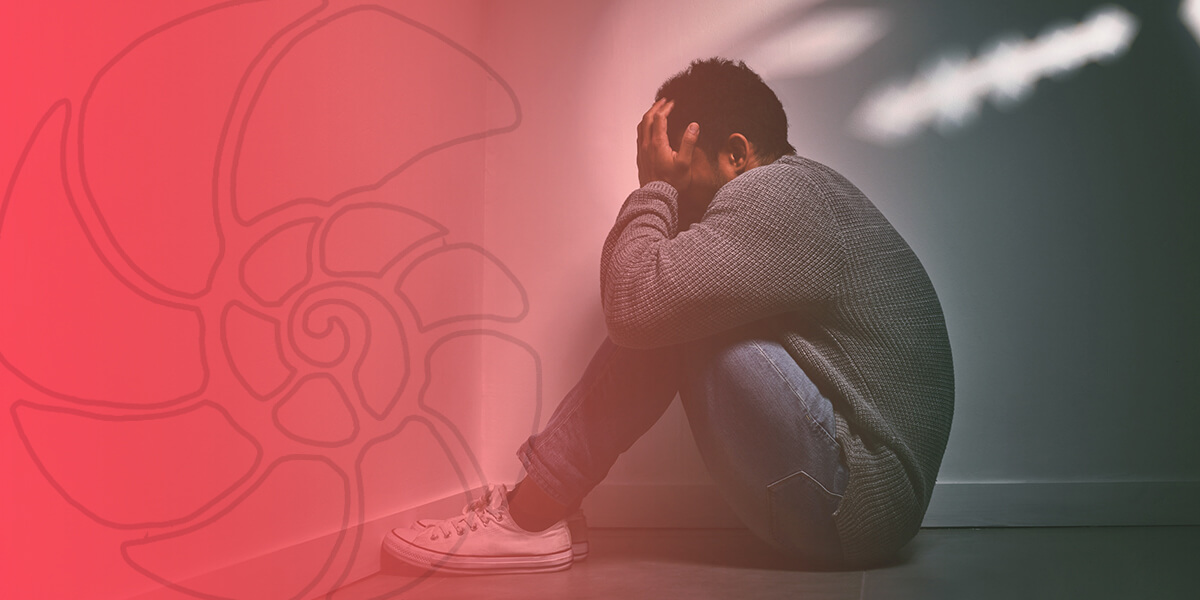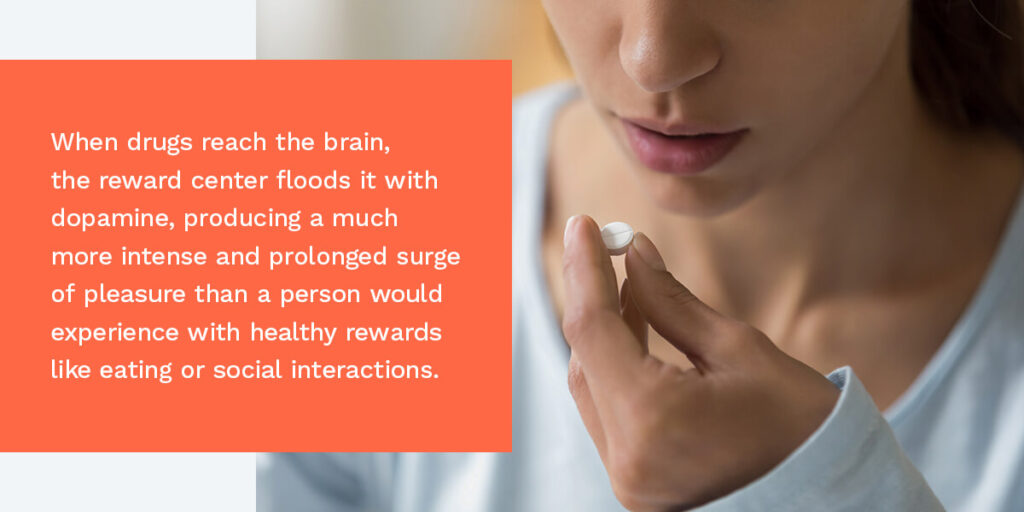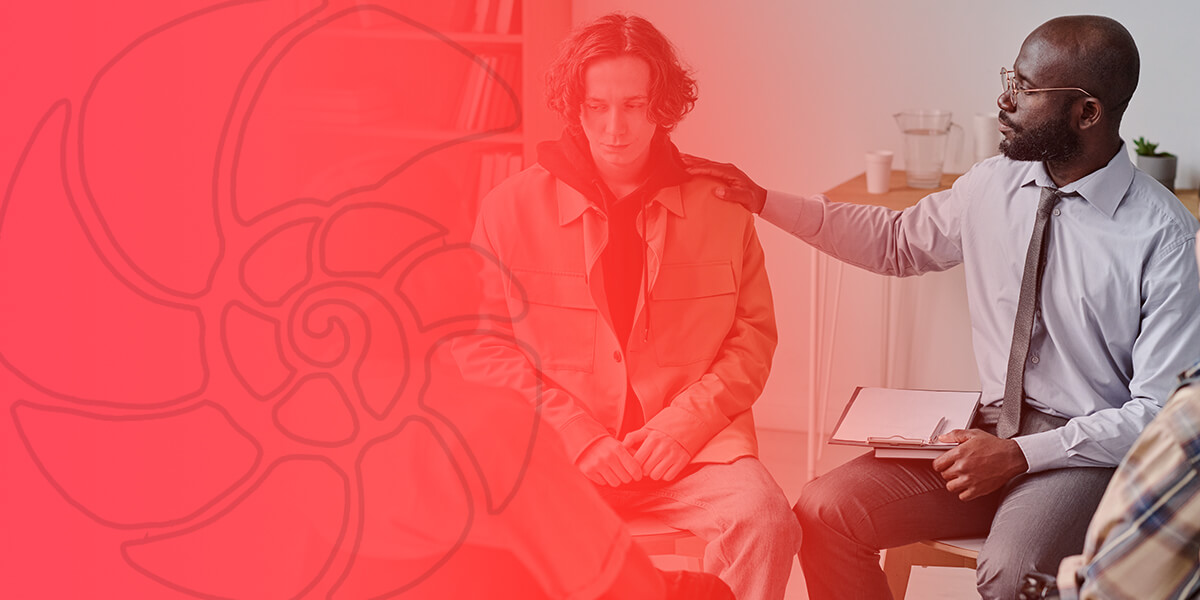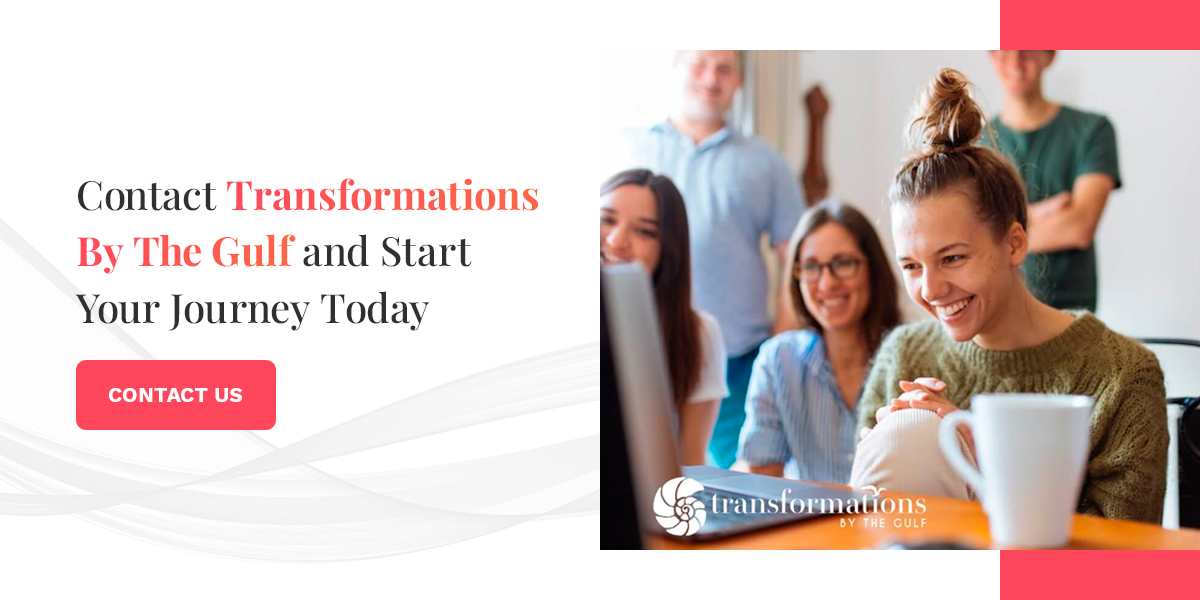How do I get my spouse addiction help now?
How do I get my spouse addiction help now?
Our relationships with our spouses are supposed to be safe havens. Our home is a place that provides safety and shelter from danger. Being in a marriage with someone who has an addiction to alcohol or drugs can lead to a very unhealthy relationship filled with emotional stress and sometimes abuse.
For many people a close relationship with an addicted spouse can create a very unstable environment. Addiction can destroy a couple by undermining trust, which weakens the bond between spouses. Conflicts over responsibilities, neglect or abuse can occur as a result of one partner or in some cases both partners using alcohol and/or drugs to cope with stress.
Helping a spouse face their addiction challenges and seek proper treatment can be a team effort. We want you to know you are not alone and we can answer any questions you have about seeking treatment for your partner. We are committed to helping you and your loved one build a foundation to stay clean and sober. Please know that when your spouse goes to our facility, they are part of the Transformations family. For more information contact us now at (727)498-6498
Learn how to recognize the signs your spouse is using drugs or abusing alcohol.
If you are wondering if your loved one is struggling with substance abuse, there are certain tell-tale signs that can indicate that she or he has a problem with drugs. Drug abuse is a growing problem in the United States. There is no way to predict if someone is going to become addicted to drugs, but there are some factors that may indicate your spouse is at an advanced risk for drug abuse. If he or she has recently suffered an injury or been prescribed medication; if there has been increased pressure at work; or if there have been certain life-events that put additional stress on your spouse, there may be cause for concern. How do I get my spouse addiction help now?
Physical changes that can indicate your spouse is using drugs or abusing alcohol.
The changes in physical condition that occur when someone is using drugs can be difficult to conceal. Your spouse may try to avoid direct contact with you to keep you from noticing anything is wrong, but once you are face-to-face with each other, look for any of the following signs:
- Bloodshot eyes
- Changes in appetite
- Drowsiness or insomnia
- Enlarged or pinpoint pupils that don’t react to light.
- Excessive sweating
- Extreme weight loss or gain
- Fast or slow heartbeat
- Grinding teeth
- Loss of coordination
- Nausea or vomiting
- Shakiness/tremors
- Slurred speech
Mood changes that may be signs your spouse uses drugs.
If your spouse starts experiencing sudden changes in mood, it may be related to drug use. He or she may begin displaying excessive irritability, hostility, anxiety, and even paranoia. Conversely, if your spouse randomly appears to be in an incredibly good, “sunny,” or euphoric mood unrelated to the events surrounding you, it may be chemically induced. Be aware that sudden, severe mood changes can also be a sign of mental health issues, so don’t dismiss these mood changes as related to drug use unless your spouse shows other signs of substance abuse.
Changes in behavior that may be signs of hidden drug use.
As drug abuse progresses, it begins to affect every aspect of the addicts’ lives. These changes may not seem like a cause for alarm as you encounter them one by one, but once they start to intertwine it can become very overwhelming and noticeable.
- Argumentative or aggressive behavior.
- Avoiding friends and family.
- Confusion, restlessness, or an inability to concentrate.
- Lying about activities, money, and behavior.
- Secretive behavior – unexplained absences, furtive phone calls, hiding items.
- Uncharacteristic drop or improvement in performance at work.
- Withdrawal from activities that were important to your spouse.
If you or someone you know would like to know more about Transformations by the Gulf Substance Abuse Treatment Center Give us a Call 24/7 (727)498-6498
How do I get my spouse addiction help now? The success of a person’s recovery depends on the level of personalized treatment provided. It is important to find an addiction treatment program that works. When we say our treatment is individualized, we mean that we craft a program that is tailored to address the client’s unique physical, mental and emotional needs.
In the client’s first 24 hours with us, we’ll evaluate their current state and work to understand what challenges they need to overcome. They’ll also have an initial session with our doctor and meet with one of our licensed mental health professionals.
After the initial evaluations, we’ll design a treatment plan with the sole mission of helping the client overcome and heal from addiction. Their program will focus on things such as:
- Addressing and Identifying root causes of addiction.
- Creating a support system.
- Developing healthy stress management techniques.
- Eliminating Substance use.
- Learning how to communicate emotions effectively.
- Maintaining a healthier lifestyle.
- Repairing damaged relationships.
Are you struggling with addiction and want to learn more? Visit Psychology Today or check out or page on addiction treatments.
Our Facility is near the beach and offers a comfortable setting for substance abuse treatment and recovery.
What a Day is Like in Our Treatment Facility.
Why Transformations by the Gulf?
What Causes Addiction in the Brain?
Addiction is a complex and often devastating condition that's shockingly widespread — one study revealed that 40.3 million Americans struggled with a substance use disorder in 2020. While the causes of addiction are multifaceted and can vary from person to person, one thing is clear: Addiction is a brain disease.
Researchers have made significant strides in understanding addiction's underlying neural mechanisms and how they contribute to developing and maintaining addictive behaviors. By examining how drugs and other addictive substances interact with the brain's reward system, scientists are uncovering new insights into the nature of addiction and how best to treat it.
Join us as we dive deeper into what causes addiction in the brain and what it means for those struggling.
Understanding the Brain's Reward System
The brain's reward system is a network of neural circuits that plays a crucial role in regulating feelings of pleasure and motivation. At the heart of this system is a group of structures called the basal ganglia, which are involved in positive forms of motivation and forming habits and routines.
When we engage in pleasurable or rewarding activities, such as eating, socializing or having sex, we activate our brain's reward system, which responds by releasing a chemical called dopamine. This dopamine surge produces a sense of pleasure and satisfaction, signaling the brain to remember the activity so it can experience the same feelings again. Neural connectivity changes make it easy to repeat the action over and over again without much thought, leading to habit formation.
There are many ways to trigger dopamine release naturally, including the following:
- Physical exercise
- Listening to music
- Meditating
- Spending time in nature
- Engaging in creative pursuits like painting or writing
- Spending time with loved ones
- Engaging in acts of kindness or volunteering
- Getting enough sleep
- Reducing stress
- Eating a nutritious diet rich in protein and healthy fats
What Causes Addiction in the Brain?
Natural, healthy dopamine triggers aren't the only way to stimulate the brain's reward center. Unfortunately, it can be hijacked by drugs and other addictive substances, leading to an addiction.
Often, people turn to addictive substances when they feel stressed or depressed. When these drugs reach the brain, the reward center floods it with dopamine, producing a much more intense and prolonged surge of pleasure than a person would experience with healthy rewards like eating or social interactions. This process starts to change the brain chemistry, and the person needs increasing amounts of the substance to feel good.
Genetics and environmental factors can also influence addiction. Certain genes may make individuals more susceptible to addiction, while environmental factors like stress, trauma and peer pressure can increase addiction risk. Additionally, early exposure to drugs or alcohol can increase the likelihood of addiction later in life.
What Does the Brain Do During Addiction?
As a person continues to feed their addiction, the brain adapts to the flood of dopamine by reducing the number of dopamine receptors. This is known as building tolerance and means the person needs more and more of the drug to achieve the same level of pleasure.
As addiction progresses, the reward system in the brain of an addict becomes increasingly dysregulated. Pursuing drugs or other addictive substances becomes the individual's primary focus in life, while activities they once enjoyed lose their appeal. This is because the brain's reward system has become hypersensitive to drugs and desensitized to other rewards.
Addiction can also affect a person's focus, learning and memory, as well as their judgment and decision-making ability. The pursuit of drugs becomes a habit rather than a conscious decision.
Addiction can also change other areas in the brain, including the prefrontal cortex and the amygdala. The prefrontal cortex is involved in thinking, planning, problem-solving, decision-making and impulse control. The amygdala helps regulate emotions like irritability, anxiety and unease, which individuals feel when a drug wears off, prompting them to seek more of it.
These changes in brain function can lead to compulsive drug-seeking behavior and a reduced ability to experience pleasure from other activities.
Even when the individual wants to quit their addiction, the brain's reward system can make it incredibly difficult to do so, as the withdrawal symptoms and cravings can be overwhelming.
Can an Addicted Brain Heal?
The good news is that addicted brains can heal. While addiction changes the brain's structure and function, research has shown that the brain has a remarkable capacity for neuroplasticity. Neuroplasticity is the brain's ability to form new neural connections and reorganize existing ones, allowing it to adapt to environmental changes and recover from injury or damage.
Neuroplasticity indicates that the brain is not a fixed, static organ but rather a dynamic and adaptable one that can change in response to learning and new experiences. This means that with the right treatment and support, it's possible for the brain to recover from the effects of addiction.
One of the most essential factors in the brain's ability to heal from addiction is the individual's motivation to change. This motivation can come from many different sources, including a desire to improve one's health, relationships or quality of life.
Another important factor in the brain's ability to heal from addiction is the availability of effective treatments and support. Various evidence-based addiction treatments, including behavioral therapies and medications, have helped individuals overcome their addictions. Emotional support and encouragement from friends, family and peers can also be a key part of recovery.
Remember that addiction recovery is not a one-size-fits-all process, and the healing timeline can vary widely depending on the individual and the severity of their addiction. Some may experience a relatively quick recovery, while others may require ongoing support and treatment to maintain sobriety.
Start Healing Today at Transformations By The Gulf
Addiction is a complex disorder that's largely influenced by brain chemistry. While some people are more susceptible to addiction than others, anyone can develop an addiction upon exposure to substances or behaviors that trigger the brain's reward system.
Understanding the underlying mechanisms of addiction allows us to develop more effective prevention and treatment strategies that address the root cause of this condition. Ultimately, breaking the cycle of addiction requires a combination of medical, psychological and social support to help individuals overcome their dependence and achieve long-term recovery.
If you or someone you care about is ready to heal from an addiction, you can find support at Transformations by the Gulf in beautiful St. Pete Beach, Florida. We offer a combination of holistic practices and traditional therapies to help clients overcome their addictions and reclaim their lives. Get in touch today to discover which programs and services are best for you.
If you or someone you know would like to know more about Transformations by the Gulf Substance Abuse Treatment Center Give us a Call 24/7 (727)498-6498
The success of a person’s recovery depends on the level of personalized treatment provided. It is important to find an addiction treatment program that works. When we say our treatment is individualized, we mean that we craft a program that is tailored to address the client’s unique physical, mental and emotional needs.
In the client’s first 24 hours with us, we’ll evaluate their current state and work to understand what challenges they need to overcome. They’ll also have an initial session with our doctor and meet with one of our licensed mental health professionals.
After the initial evaluations, we’ll design a treatment plan with the sole mission of helping the client overcome and heal from addiction. Their program will focus on things such as:
- Addressing and Identifying root causes of addiction.
- Creating a support system.
- Developing healthy stress management techniques.
- Eliminating Substance use.
- Learning how to communicate emotions effectively.
- Maintaining a healthier lifestyle.
- Repairing damaged relationships.
Our Facility is near the beach and offers a comfortable setting for substance abuse treatment and recovery.
What a Day is Like in Our Treatment Facility.
Why Transformations by the Gulf?
Allergic Reactions to Meth: How Common Are They?
An unexpected allergic reaction to meth is common. Methamphetamine is a highly addictive stimulant drug with substantial side effects that can worsen the more it is used. For some, a single dose can activate a severe reaction, while others may react after a period of usage.
Allergic reactions to meth can be fatal. Continue reading to learn more about what signs to look for to see if you are having an allergic reaction to meth and how Transformations By The Gulf can help.
What Causes an Allergic Reaction to Meth?
Allergic reactions to this drug are primarily due to an unexpected allergy to an ingredient in the substance — often from an added ingredient.
Methamphetamine is a dangerous drug, and it can contain additives that make it even more harmful. Dealers usually add these other materials to make the substance weigh more, ultimately selling less for more money. Common additives include powder-like substances, other medicines and metals — all of which have the potential to trigger an adverse reaction.
Symptoms of Allergic Reactions to Meth
Allergic reactions to meth often resemble overdoses, with symptoms such as:
- Dizziness
- Rapid heartbeat
- Fainting
- Circulation numbness
- Chest pains
- Muscle spasms
- Hallucinations
- Seizures
Meth users may also experience distinct allergy symptoms, like:
- Hives
- Swelling of lips, tongue and throat
- Difficulty breathing
What to Do If You Have an Allergic Reaction to Meth
Allergic reactions to meth can be fatal and should be taken seriously. If an allergic reaction occurs, call emergency medical services immediately. Whether the allergic reaction is life-threatening or not, you should see a medical professional to monitor your symptoms and facilitate healing.
It is also essential to remain calm in these situations. We understand that this is not easy to do, but feeling flustered may worsen symptoms. Staying calm and collected as the individual undergoing the allergic reaction or as the loved one assisting the situation can save a life.
Following medical care, methamphetamine addiction rehabilitation can be the next healthy step in recovery. These centers guide patients through therapeutic sessions and inpatient rehab programs to ensure this event does not happen again.
Contact Transformations By The Gulf and Start Your Journey Today
Regardless of whether you have suffered an allergic reaction to meth, this powerful substance can harm your body. At Transformations By The Gulf, we are committed to helping patients work through addiction and learn applicable skills in real-world situations to prevent relapse.
Please reach out to our team today to learn more about how we can help you or your loved one recover from addiction.
If you or someone you know would like to know more about Transformations by the Gulf Substance Abuse Treatment Center Give us a Call 24/7 (727)498-6498
The success of a person’s recovery depends on the level of personalized treatment provided. It is important to find an addiction treatment program that works. When we say our treatment is individualized, we mean that we craft a program that is tailored to address the client’s unique physical, mental and emotional needs.
In the client’s first 24 hours with us, we’ll evaluate their current state and work to understand what challenges they need to overcome. They’ll also have an initial session with our doctor and meet with one of our licensed mental health professionals.
After the initial evaluations, we’ll design a treatment plan with the sole mission of helping the client overcome and heal from addiction. Their program will focus on things such as:
- Addressing and Identifying root causes of addiction.
- Creating a support system.
- Developing healthy stress management techniques.
- Eliminating Substance use.
- Learning how to communicate emotions effectively.
- Maintaining a healthier lifestyle.
- Repairing damaged relationships.
Our Facility is near the beach and offers a comfortable setting for substance abuse treatment and recovery.
What a Day is Like in Our Treatment Facility.
Why Transformations by the Gulf?
